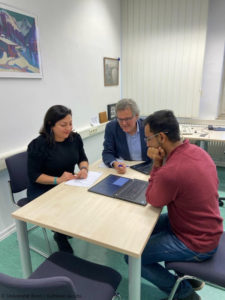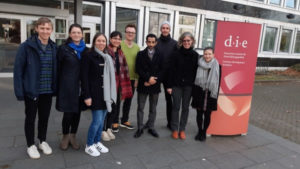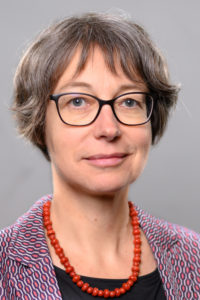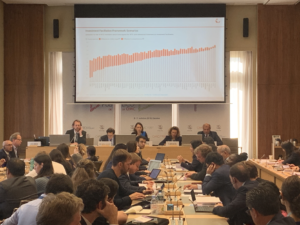New project “digitainable” at the Innovation-Campus Bonn (ICB)
 Digitalization is an important driver for change in many areas of our lives and there is intense debate about whether it has a positive or negative impact on sustainable development. Often such considerations remain general. The main objective of the project digitainable is to go beyond this and to examine in detail the impact of digitalization on sustainable development.
Digitalization is an important driver for change in many areas of our lives and there is intense debate about whether it has a positive or negative impact on sustainable development. Often such considerations remain general. The main objective of the project digitainable is to go beyond this and to examine in detail the impact of digitalization on sustainable development.
The most comprehensive formulation of our current understanding of sustainability is the 2030 Agenda, which was adopted by the UN Member States in September 2015. With its 17 Sustainable Development Goals (SDGs), specified by 169 targets and more than 200 indicators, it comprehensively captures the sustainability landscape, including different areas such as improving health, eradicating poverty, gender equality and climate change. To come close to achieving these goals within the planned timeframe, a breakthrough in terms of speed and degree of progress is necessary. It is often assumed that digitalization and artificial intelligence (D&AI) can be used to significantly increase progress towards the SDGs. However, it is still unclear where and how D&AI can help to control and monitor the complex interrelationships of the broadly defined SDGs and their indicators, and where it could even hamper progress, for example through the high consumption of energy if it is generated from fossil sources. Digitainable aims to uncover the complex relationships between the indicators of SDGs and to understand the impact of D&AI on the progress towards the SDGs, both from a technical-scientific and a social-scientific perspective.
Methodological approach of the project
In the project, the influence of D&AI on the Agenda 2030 indicators is examined individually. A particular challenge is that D&AI are not explicitly addressed either in the SDGs themselves or in the targets and indicators. Therefore, the interrelationships are mostly indirect. The project is therefore divided into the following two phases:
Phase 1: The project will identify the impact of D&AI at the indicator level, both at the level of individual indicators and their linkages. It will attempt to describe a Theory of Change for each indicator.
Phase 2: It is known that there are numerous synergies and tradeoffs between the different indicators. The project will examine possible effects of D&AI on these relationships and will try to identify options where D&AI can enhance synergies and mitigate tradeoffs. In particular, it will also examine how to incorporate the issue of D&AI into a future („post-2030“) agenda.
Project team and collaboration
Dr. Mahsa Motlagh (social sciences)
Dr. Shivam Gupta (technical and natural sciences)
The project will rely on cooperation with partners within and outside the Bonn Alliance for Sustainability Research for a wide range of issues.
Community Building – digitainable Thinkathon

We want to bring together people who deal with these important tasks and issues! On 28April 2020, we will host a digitainable Thinkathon in Bonn (in English). The online application process opens on 29 January 2020.
To intensify the cooperation between BICC (Bonn International Center for Conversion), the German Development Institute / Deutsches Institut für Entwicklungspolitik (DIE), the Hochschule Bonn-Rhein-Sieg, University of Applied Sciences (H-BRS), the Institute for Environment and Human Security of the United Nations University (UNU-EHS) and the University of Bonn including the Center for Development Research (ZEF), on November 15, 2017 these institutions founded the Bonn Alliance for Sustainability Research in Bonn in the context of the UN Climate Change Conference.
The regional research network aims to further strengthen research in the field of sustainable development and global change. It helps to interlink and expand the interdisciplinary competence in this field in Bonn. Furthermore, the Bonn Alliance aims at jointly establishing the Innovation Campus Bonn (ICB).



